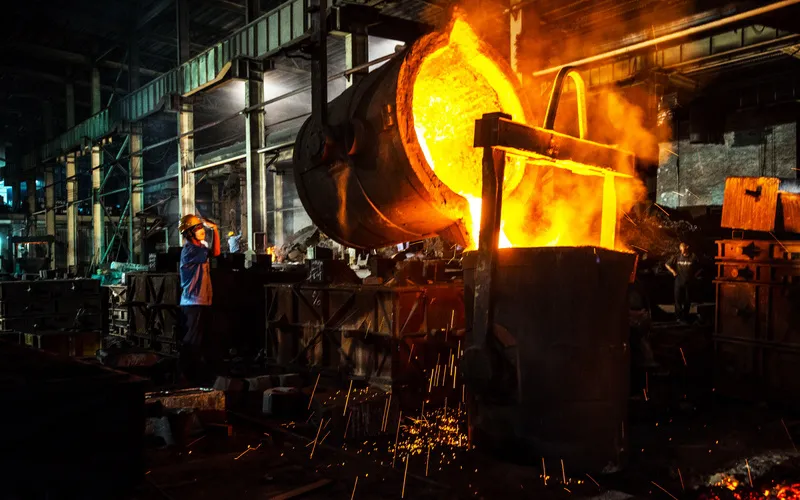Innovations in Precision Aluminum Casting Techniques
The manufacturing landscape is evolving rapidly, and industries relying on high-quality metal components are turning to advanced solutions like precision aluminum casting to meet demanding specifications. Companies such as Engineered Precision Casting Co and Milwaukee Precision Casting are at the forefront of integrating cutting-edge technologies with precision foundry tooling to produce precision casting components that redefine performance and reliability. This article explores how these innovations are transforming wholesale production, ensuring faster turnaround, superior quality, and scalability for industrial partners.

Engineered Precision Casting Co: Redefining Bulk Manufacturing Excellence
When it comes to wholesale production of precision casting components, Engineered Precision Casting Co stands as a benchmark for innovation and consistency. By leveraging proprietary precision foundry tooling, the company delivers complex aluminum parts with micron-level accuracy, ideal for aerospace, automotive, and energy sectors. Their vertically integrated facilities enable large-scale orders without compromising on quality, thanks to automated workflows and real-time quality monitoring. For wholesalers, this translates to shorter lead times, competitive pricing, and components that integrate seamlessly into high-stakes applications.
The company’s expertise in precision aluminum casting extends to custom alloys tailored for extreme environments, such as heat-resistant formulations for turbine engines or corrosion-resistant grades for marine systems. By collaborating closely with wholesale clients during the design phase, Engineered Precision Casting Co ensures that every component aligns with technical and budgetary requirements, solidifying long-term partnerships across global supply chains.
Precision Foundry Tooling: The Backbone of High-Volume Production
At the heart of efficient wholesale manufacturing lies precision foundry tooling, a critical factor in achieving repeatability and scalability. Advanced tooling systems, such as multi-cavity molds and AI-driven pattern design, enable foundries to produce thousands of identical precision casting components with minimal waste. Milwaukee Precision Casting, for instance, employs modular tooling solutions that adapt to diverse product lines, allowing wholesalers to consolidate orders for mixed components without sacrificing efficiency.
Innovations like 3D-printed sand molds and hybrid ceramic cores have further revolutionized precision aluminum casting, reducing tooling costs by up to 40% while enabling intricate geometries. For wholesalers, this means access to lighter, stronger, and more durable parts—essential for industries like robotics and medical equipment. By investing in next-gen tooling, manufacturers ensure that bulk orders meet evolving industry standards, from ISO certifications to material traceability.
Milwaukee Precision Casting: Pioneering Scalable Solutions for Industry Leaders
With decades of experience, Milwaukee Precision Casting has carved a niche in delivering wholesale-grade precision casting components that cater to Fortune 500 companies and emerging innovators alike. Their specialization in precision aluminum casting combines traditional craftsmanship with digital twin technology, enabling rapid prototyping and seamless scaling to mass production. For wholesalers, this hybrid approach minimizes upfront costs and accelerates time-to-market for new product lines.
The company’s vertically integrated supply chain ensures end-to-end control, from raw material sourcing to final inspection. By utilizing precision foundry tooling calibrated for high-volume output, Milwaukee Precision Casting guarantees dimensional consistency across batches—a non-negotiable for automotive and defense clients. Additionally, their closed-loop recycling programs align with sustainability mandates, offering wholesalers eco-friendly options without premium pricing.
Precision Casting Components: Driving Efficiency in Global Supply Chains
The demand for precision casting components is surging as industries prioritize lightweight, high-strength parts to enhance operational efficiency. Precision aluminum casting excels here, offering a superior strength-to-weight ratio compared to steel or iron. Wholesale buyers benefit from components like turbine blades, hydraulic valves, and sensor housings—all produced with precision foundry tooling to ensure flawless performance in critical systems.
Companies like Engineered Precision Casting Co and Milwaukee Precision Casting are also addressing supply chain resilience by regionalizing production hubs. This strategy reduces dependency on overseas suppliers, providing wholesalers with faster replenishment cycles and reduced logistics costs. Furthermore, digital inventory platforms allow clients to track bulk orders in real time, ensuring transparency from factory floor to assembly line.
FAQs: Precision Aluminum Casting
How do precision foundry tooling innovations reduce costs for bulk orders?
Advanced tooling, such as modular molds and 3D-printed patterns, slashes material waste and accelerates production cycles. This efficiency allows suppliers like Milwaukee Precision Casting to offer competitive pricing for high-volume orders.
What industries benefit most from precision aluminum casting?
Aerospace, automotive, energy, and medical sectors rely on these components for their lightweight durability and resistance to extreme conditions.
Can Engineered Precision Casting Co handle custom alloy development?
Yes, their R&D team collaborates with wholesalers to formulate alloys tailored to specific thermal, mechanical, or corrosive environments.
How does Milwaukee Precision Casting ensure quality in bulk production?
Automated inspection systems and statistical process control (SPC) monitor every batch, ensuring compliance with international standards.
What makes precision casting components preferable over machined parts?
Casting allows for complex shapes and internal geometries that machining cannot achieve, reducing assembly steps and material costs.
-
Types of Pressure Die CastingNewsMay.30,2025
-
Precision Casting Manufacturers for High-Quality Metal ComponentsNewsMay.30,2025
-
Key Steps in Aluminum Die Casting ManufacturingNewsMay.30,2025
-
How to Find Affordable Die Casting Components for SaleNewsMay.30,2025
-
General Topics on Casting & Die CastingNewsMay.30,2025
-
Discuss Leading Manufacturers SpecializingNewsMay.30,2025















